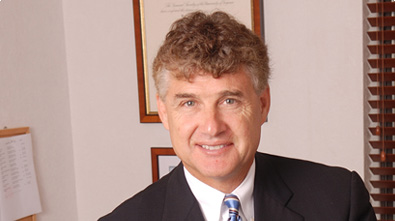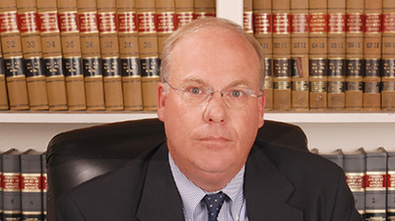By Dawn Chase
Nationwide Insurance Co. of America has paid $50,000 in punitive damages after a federal magistrate judge allowed a fraud action to proceed against the insurer for the way it handled a Chesapeake woman’s underinsured motorist claim.
In the case, the woman — the plaintiff in a personal injury suit — had served the wrong Nationwide entity, which defended the claim without informing her of the error. When a jury awarded her $100,000, Nationwide of America then disclosed the error and refused to pay the UIM claim.
U.S. Magistrate Judge James E. Bradberry of Norfolk suggested the company’s action was “borderline fraud,” according to the transcript of a July 24 motions hearing.
The federal judge’s opinion and order can be accessed as VLW 001-3-281.
Nationwide confusion
The defendant had $25,000 in liability coverage through Allstate, and the plaintiff had $50,000 in UIM coverage through Nationwide Mutual Insurance Co.
The declaration page for the plaintiffs policy identified her carrier only as “Nationwide Insurance,” Larsen said. The plaintiff served not Nationwide Mutual, but Nationwide Insurance Co. of America, one of 144 entities registered with the Virginia Corporation Commission that carry the name “Nationwide,” according to Larsen.Throughout the year before trial, Nationwide of America filed responsive pleadings, answered discovery and rejected arbitration. Orders in the case, prepared by Nationwide, were signed “Counsel for Nationwide.”After a jury awarded the plaintiff $100,000, the lawyer for the defendant contacted Nationwide of America to ask that it waive subrogation.
The Nationwide of America lawyer informed him of its erroneous service claim and the company’s refusal to pay the $25,000 UIM claim. The defendant’s lawyer broke the news to Larsen.Larsen reviewed the file to see if he had missed something. Then he responded on two fronts.
First, he served Nationwide Mutual and entered a post-verdict motion in Circuit Court for Nationwide Mutual’s name to be inserted in the pleadings, under Virginia Code Sect. 8.06-6.2, which allows amendments in discrete situations when trade names are confusing.
Judge Norman Olitsky, who presided at the trial, denied that motion and the plaintiffs request fora new trial.Larsen appealed the case to the Supreme Court of Virginia. When he stood to argue for his petition, Justice Leroy R. Hassell Sr. waved him away. “Counselor, you don’t need to say anything. We’re going to hear this case,” Hassell said, according to Larsen.
Second, Larsen brought the federal action, for actual and constructive fraud and intentional interference with a contract expectancy, against Nationwide of America.
Wasn’t asked …
During the federal hearing on Nationwide’s motion to dismiss, Nationwide of America lawyer Thomas A. Fitzgerald H used a “wasn’t asked, so didn’t tell” argument, according to the transcript.According to plaintiffs attorney Gregory S. Larsen of Chesapeake, the case was a “garden variety” personal-injury suit arising from an automobile accident in which the plaintiff sustained soft-tissue neck and back injuries.
The plaintiff had never raised the question of coverage by Nationwide of America in the motion for judgment or in discovery. At what point was the insurer supposed to step forward and volunteer the information? Fitzgerald asked, according to the transcript.
Case law has established that the UIM carrier is adversarial to the insured when a claim is asserted, and the carrier has no obligation to go against its own interests, Fitzgerald argued.
He also said that, although Nation-wide of America had filed papers in the case, it had not participated in the Client trial.
Larsen countered that Nationwide of America and Nationwide Mutual are closely linked. They are both subsidiaries of the same company, and they share a president and board of directors.
Nationwide Mutual had stipulated that it knew of the Client case from its inception. In fact, the police report, photographs of the damage and repair bill that Nationwide of America submitted in its answers to discovery had come from Nationwide Mutual’s files, Larsen said.
According to the transcript, Bradberry observed, “The fact is that so long as Nationwide Insurance Company of America was the defendant, Nationwide Mutual Insurance Company was dodging the bullet, … and if the judgment was rendered against Nationwide Insurance Co. of America, then Nationwide Mutual Insurance Co. is off the hook. Am I not correct?”
Fitzgerald said he was correct.
Bradberry continued, “In my opinion is borderline fraud…. It’s so close to fraud, it’s not even funny.”In his written opinion, Bradberry focused on Nationwide of America’s answers to interrogatories, which were “answers of the nature which only the true insurance carrier would have access to. …
“Defendant intimated in its answers to interrogatories that it ‘had not determined which, if any, experts’ it would call and it may call ‘any and all of plaintiffs treating health care providers.’
“Clearly, this information provided by defendant is information that could only be provided by the actual insurance carrier” and “would lead any reasonable plaintiff to infer that defendant was a proper party to the suit.”
Bradberry called the relationship between the two Nationwide entities “the most bothersome aspect of the case.”
“By accepting the defense of litigation, defendant was essentially protecting the true UM/UIM carrier, Nationwide Mutual, by shielding it from service by plaintiff,” he wrote.
“Moreover, defendant was keeping Nationwide Mutual abreast of progress in the litigation in the event that plaintiff realized her mistake and served the proper party, thus giving Nationwide Mutual an advantage in any future litigation between it and plaintiff.”
Bradberry found the plaintiff had alleged the elements necessary for the claims to move forward to a jury trial.He concluded the opinion:” An individual within the general public who is contemplating purchasing insurance should not have to worry about various insurance companies who share a close relationship concealing information that would inhibit the insured from receiving the full benefit of an insurance policy for which that individual pays dearly,” he wrote.
Case settled
Faced with possible sanctions of $350,000 in federal court and the Virginia Supreme Court’s apparent enthusiasm for the state case, Nationwide of America settled for $75,000 — the $25,000 in UIM coverage plus $50,000 in punitives.
Chase, Dawn. “Nationwide Settles Case Alleging Fraud.” Virginia Lawyer’s Weekly 17 Dec. 2001. © 2001 Lawyers Weekly Inc., All Rights Reserved.



